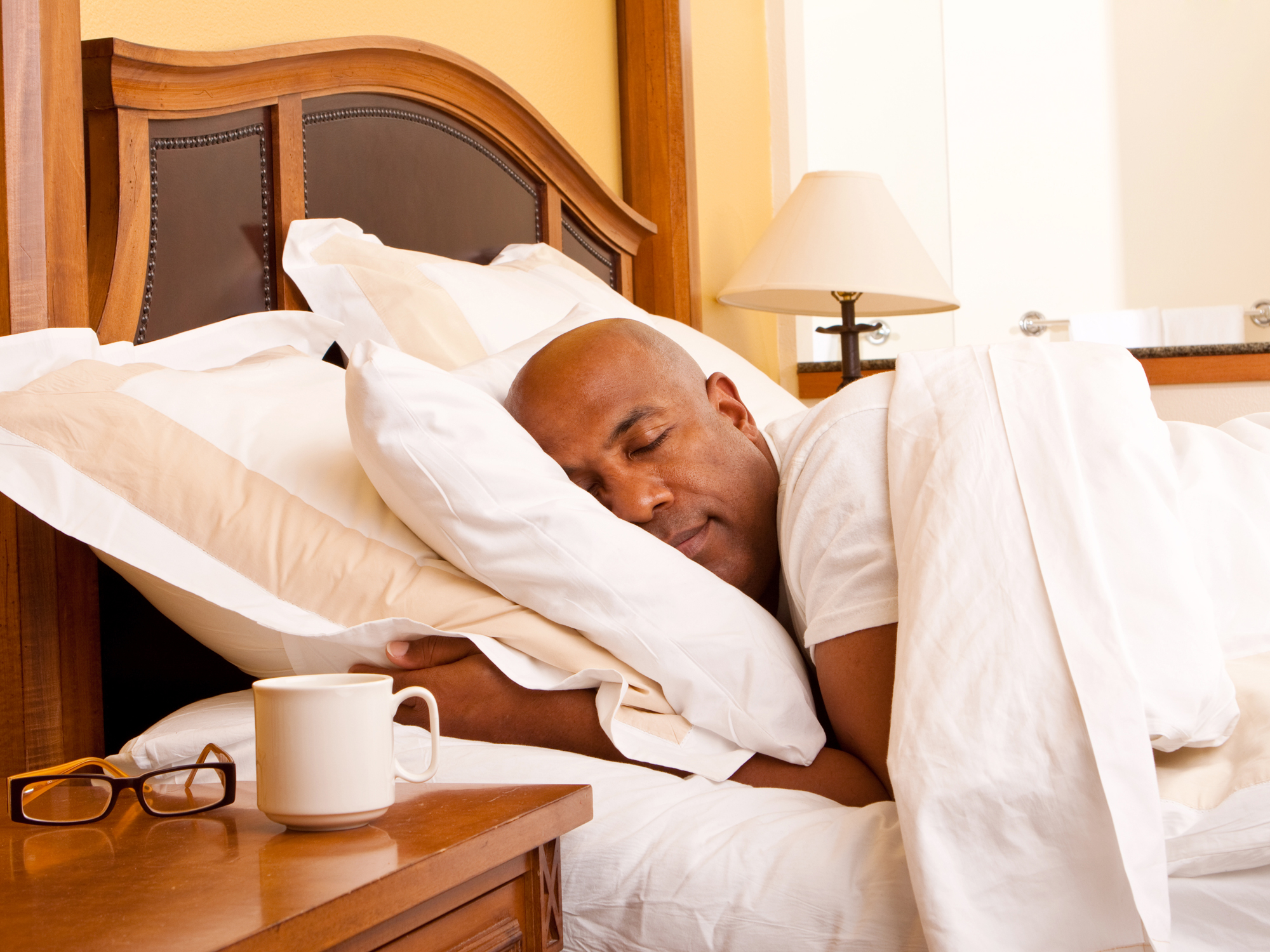Get Easy Health Digest™ in your inbox and don’t miss a thing when you subscribe today. Plus, get the free bonus report, Mother Nature’s Tips, Tricks and Remedies for Cholesterol, Blood Pressure & Blood Sugar as my way of saying welcome to the community!
6 safe ways to sleep better

If you’ve noticed you have a harder time sleeping well the older you get, you’re not alone.
You can thank changes to your “sleep architecture” for that, which include spending more time in the lighter sleep phases than the deeper ones, taking longer to fall asleep and an increase in sleep fragmentation — meaning you wake up a lot during the night.
Unfortunately, sleep doesn’t come easily for nearly half of older Americans, and more than a third have resorted to some form of medication to help them fall asleep at night.
Yet, those who turn to medications may not realize that prescription and even over-the-counter sleep aids carry health risks, especially for older adults. The national guidelines strongly warn against prescription sleep medicine use by people over age 65. It’s harder for a mature body to process these drugs, causing them to stay in their systems for longer periods.
According to Preeti Malani, M.D., a University of Michigan physician trained in geriatric medicine, “Some of these medications can create big concerns for older adults, from falls and memory issues to confusion and constipation,” even if they’re sold over-the-counter without a prescription.
And, even scarier?
Among those who report sleep troubles three or more nights a week, 23 percent use prescription sleep aids. Most who use such drugs to help them sleep have been taking them for years despite warnings by manufacturers and the U.S. Food and Drug Administration, which say that these drugs are only for short-term use.
Obviously, avoiding these medications and their dangerous side effects is in your best interests.
Fortunately, several safe and natural sleep aids are available to help you rest better…
1. Magnesium
A calming nutrient, magnesium promotes better, deeper sleep and muscle relaxation. One study suggests it may also afford protection against dementia. You can find magnesium in foods like pumpkin seeds, spinach and kefir or take a magnesium supplement. The optimal dose is 200 – 400 mg at bedtime.
2. Passion Flower
Passionflower can help reduce anxiety, allowing you to fall asleep and stay asleep. One study showed that the supplement is as effective as the commonly prescribed anti-anxiety drug known as benzodiazepine oxazepam.
The typical dose of passionflower is about 1 to 2 grams, finely chopped. You can make a tea by steeping a teaspoon of dried herbs in a cup of boiling water for a few minutes, and drink it at bedtime.
3. Valerian Root
Valerian works by increasing the amount of gamma-aminobutyric acid (GABA) to block signals to your brain that cause anxiety.
Take 300 to 600 milligrams of valerian root 30 minutes to two hours before bedtime. For valerian tea, soak 2 to 3 grams of dried herbal valerian root in 1 cup of hot water for 10 to 15 minutes.
4. Tryptophan
That amino acid that makes you sleepy after eating your Thanksgiving dinner can also help you rest better at night. You can get tryptophan from carbohydrate-rich foods like 100% whole grain oats, brown rice, corn or quinoa. It also promotes healthy aging.
5. Melatonin
This tried-and-true natural sleep aid is a natural hormone made by your body’s pineal gland. This is a pea-sized gland located just above the middle of the brain. During the day, the pineal is inactive.
When the sun goes down and darkness occurs, the pineal is “turned on” and begins to produce melatonin, releasing it into the bloodstream. Usually, this happens around 9 pm. As a result, melatonin levels in the blood rise sharply, and you begin to feel less alert.
To boost your body’s natural melatonin levels, consider a supplement of 1 to 5 mg taken 30 minutes before bedtime. Besides promoting sleep, it’s reported to help slow aging and fight disease.
However, be sure to have adequate vitamin D levels, as melatonin may not work well for you if you are deficient. Vitamin D and melatonin are interconnected hormones, both playing roles in sleep regulation. Vitamin D is also necessary for melatonin production, and many adults in the U.S. have insufficient levels. A therapeutic dosage of 5000 IU is usually recommended to increase levels.
6. Calcium
Since calcium levels are at their highest during your deep, rapid eye movement (REM) sleep periods, it makes sense that a calcium deficiency could lead to poor sleep. It’s also the likely reason behind the old-timey remedy of a glass of warm milk to help you sleep. You can try this, or for even more calcium power, along with magnesium to help you relax, try a glass of kefir instead.
Don’t let sleep problems drag you down. Use the natural sleep aids above to get a good night’s rest and wake up refreshed.
Editor’s note: While you’re doing all the right things to protect your brain as you age, make sure you don’t make the mistake 38 million Americans do every day — by taking a drug that robs them of an essential brain nutrient! Click here to discover the truth about the Cholesterol Super-Brain!
Sources:
- One in three older adults take something to help them sleep but many don’t talk to their doctors — Michigan Medicine – University of Michigan
- Blood and brain magnesium in inbred mice and their correlation with sleep quality — American Journal of Physiology. Regulatory, Integrative and Comparative Physiology
- 2 Passion Flower Benefits: Anti-Anxiety and Insomnia Without the Side Effects — University Health News














